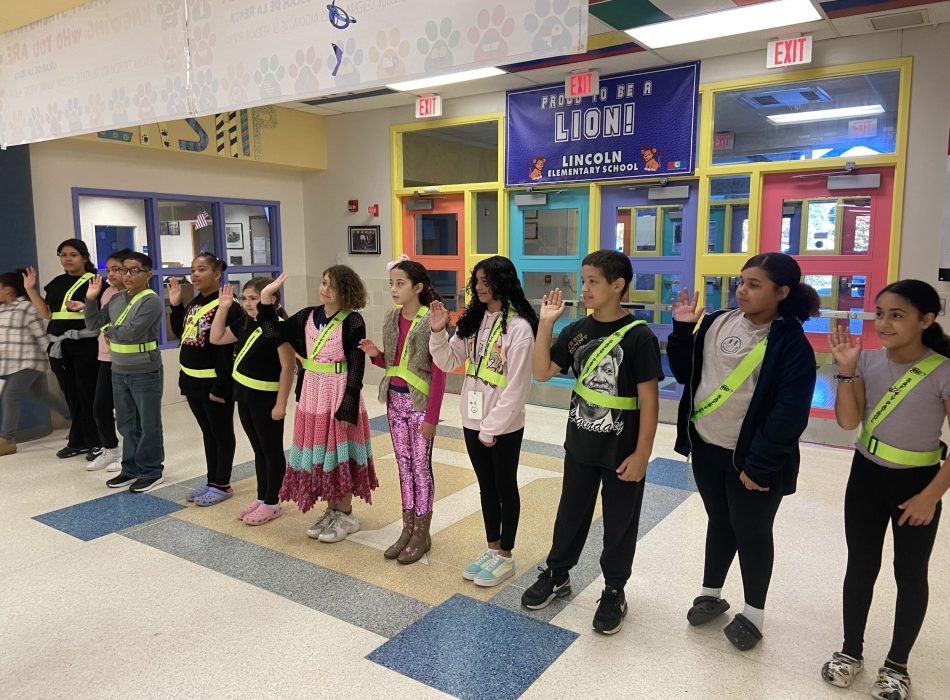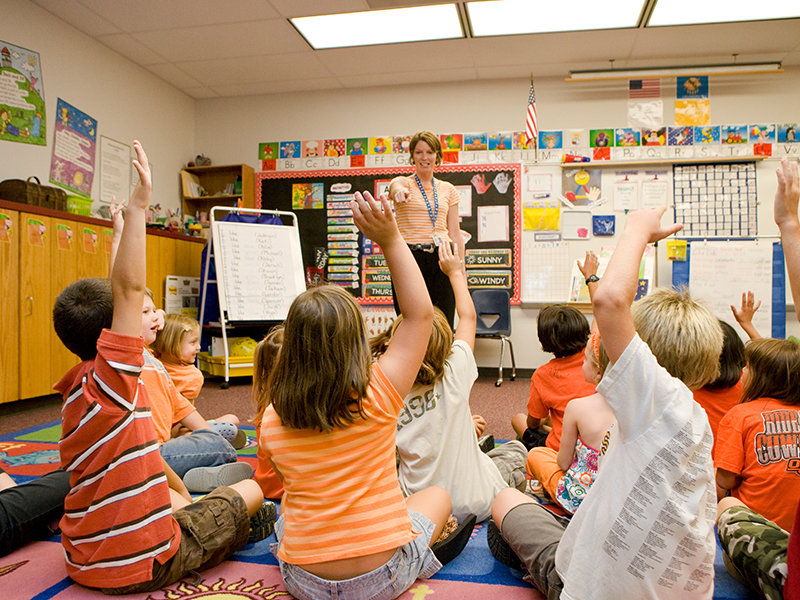The benefits of a well-rounded Grade School education
Wiki Article
Innovative Knowing Activities in Kindergarten: Enhancing Abilities With Play and Interaction
Creative learning tasks in kindergarten work as foundational experiences for young learners (Grade School). These tasks motivate ability development via spirited engagement and social interaction. Kids explore their creativity, improve communication, and find out useful social skills. Each experience adds to their growth in special methods. Understanding how these tasks form very early growth reveals the profound effect of play in education and learning. What particular components make these experiences so effective in supporting well-rounded individuals?The Duty of Play in Early Childhood Advancement
While many might ignore the relevance of play, it offers as a basic element of very early childhood years development. Via play, children explore their settings, foster social abilities, and create cognitive capabilities. Participating in disorganized activities allows them to utilize their imagination, trying out problem-solving, and enhance their essential reasoning abilities. In addition, play provides a risk-free area for emotional expression, making it possible for kids to browse their feelings and develop strength.Furthermore, play urges physical advancement as youngsters involve in tasks that enhance their motor abilities and coordination. Communication with peers throughout playtime advertises synergy and interaction, preparing for future relationships. Kindergarten. Educators and parents recognize that play is not merely an activity but an important aspect of knowing, shaping a youngster's ability to adapt and thrive in different situations. Inevitably, play enhances children's lives, preparing them for the challenges of the future while cultivating a lifelong love for discovering
Imaginative Arts and Crafts: Stimulating Imagination
Imaginative arts and crafts play a substantial role in igniting children's imaginations and improving their innovative abilities. These tasks encourage self-expression via different tools, such as paint, attracting, and sculpting. By engaging in hands-on tasks, kids learn to manipulate products, promoting great electric motor skills and hand-eye sychronisation.Furthermore, imaginative arts supply a system for problem-solving and important reasoning, as youngsters check out different techniques and techniques to their creations. This expedition allows them to experiment, make decisions, and learn from their experiences.
Partnership is one more key element, as kids typically work with each other on team jobs, sharing ideas and sources. This communication not only builds social abilities but additionally nurtures a sense of area. Inevitably, imaginative arts and crafts function as important tools in a preschool setup, promoting cognitive, psychological, and social growth while stimulating the inherent interest and creative imagination of young students.
Interactive Storytelling: Structure Language Skills
Interactive narration functions as an effective device for developing language abilities in young youngsters, as it engages them in the narrative process and urges energetic involvement. Via narration sessions, children are invited to pay attention, respond, and even add to the unraveling tale. This interactive layout nurtures vocabulary development by exposing them to new words in context.As they participate, youngsters exercise necessary communication skills, such as articulation and expression. They find out to sequence events, determine characters, and understand the story, fostering critical reasoning. Furthermore, interactive narration usually integrates visual help, audio impacts, and props, which even more improve engagement and understanding.
When children share their own tales, they experience a feeling of agency and creativity, enhancing their language skills in a supportive atmosphere. Inevitably, interactive storytelling grows a love for language and literature, establishing a solid structure for their future scholastic success.
Hands-On Science Experiments: Encouraging Inquiry
Hands-on science experiments supply young learners with important chances to discover and ask concerning the world around them. Engaging in simple, interactive experiments permits kindergarteners to ask concerns, make predictions, and observe outcomes firsthand. These activities stimulate curiosity and cultivate a sense of wonder, motivating kids to examine the homes of products, reactions, and natural sensations.As an example, experiments such as growing seeds or blending sodium bicarbonate and vinegar not just highlight clinical principles yet likewise boost critical assuming skills. Children learn to document their observations, promoting literacy and numeracy as they determine, contrast, and record data. Furthermore, hands-on scientific research fosters a development frame of mind, teaching durability as they navigate challenges and gain from blunders.

Collaborative Games: Cultivating Synergy and Social Abilities
Taking part in collaborative games offers kindergarteners a special system to create teamwork and social abilities while improving the inquiry-based understanding fostered by hands-on scientific research experiments (Grade School Peoria). These video games motivate children to function with each other toward typical objectives, find out advertising interaction and participation. As they navigate various obstacles, they find out to share duties, negotiate roles, and settle disputes-- important parts of effective team effortThrough structured tasks such as team challenges, relay races, or participating narration, children not just improve their social interactions but also enhance their psychological intelligence. They acquire insights into empathy and assistance, finding out that each child's contribution is important. In addition, these collective experiences cultivate a feeling of area within the class, creating bonds that extend beyond specific play. By incorporating joint video games right into the curriculum, teachers can lay the groundwork for essential life skills that will certainly benefit kids in their future educational and social settings.
Often Asked Questions
Just How Can Parents Assistance Creative Learning at Home?
Moms and dads can support imaginative learning in your home by supplying varied materials, urging exploration, engaging in creative play, asking open-ended questions, and promoting a secure atmosphere where kids really feel complimentary to share their ideas and imagination.
What Products Are Best for Arts and Crafts Activities?
A selection of products boost crafts and arts activities, consisting of construction paper, scissors, glue, markers, paints, and recycled things. These resources inspire creativity and permit youngsters to discover their creative imagination via find more info hands-on experiences.Exactly How Do Educators Assess Kid's Creative thinking?
Educators examine youngsters's creative thinking through monitorings, profiles of job, and flexible jobs that motivate self-expression. They assess analytic abilities, originality, and determination to experiment, giving understandings into each kid's distinct creative advancement and capabilities.What Are Some Examples of Outdoor Creative Activities?

Just How Can Cultural Styles Be Integrated Into Creative Understanding?
Social themes can be integrated into innovative discovering by integrating varied stories, songs, art, and practices, motivating kids to discover and commemorate various histories, promoting inclusivity and understanding while enhancing their creative thinking and cognitive skills.Youngsters discover their creativity, enhance interaction, and learn important social abilities. With official website play, youngsters discover their atmospheres, foster social skills, and develop cognitive abilities. Additionally, play encourages physical development as children engage in tasks that boost their electric motor abilities and control. Creative arts and crafts play a substantial function in igniting kids's imaginations and improving their innovative abilities. Interactive narration offers as a powerful tool for constructing language abilities in young children, as it engages them in the narrative process and encourages energetic participation.
Report this wiki page